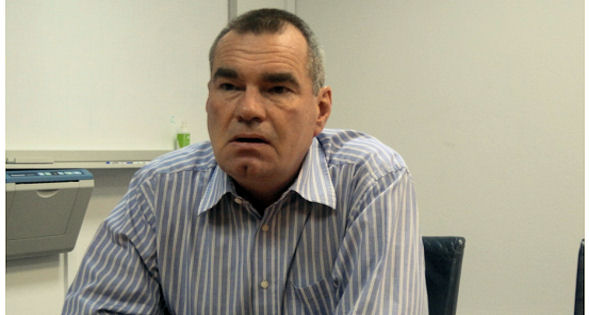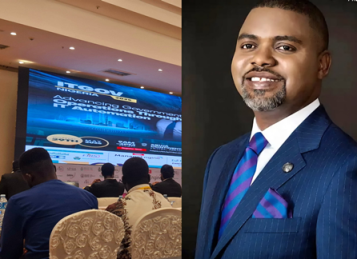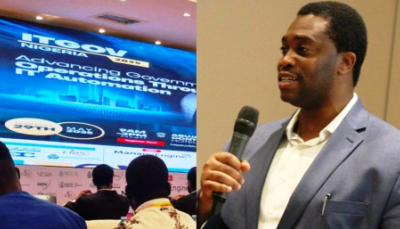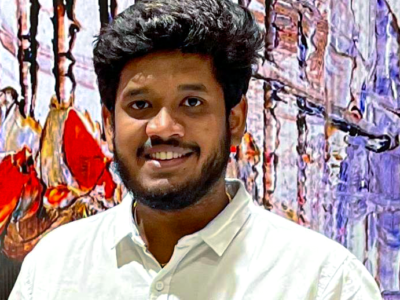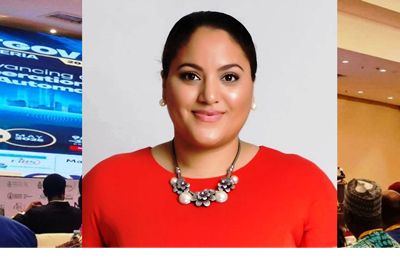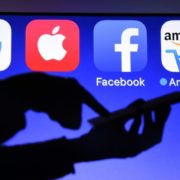In this exclusive interview with IT Edge News, SEGUN ORUAME and MARTIN EKPEKE,
Ericsson Nigeria Country Manager, Gary Dewing speaks on Ericsson’s ‘Networked
Society,’ the dwindling fortunes of CDMA networks in Nigeria, and the challenge of
getting access to rural communities. He spoke with IT Edge News inside Ericsson’s
Lagos office.
What is your perception of the Nigerian ICT sector in the last one year?
I will say it is extremely vibrant. We had seen a slow down between 2010 and 2011 in
capital investment in the mobile sector of the ICT industry. I believe that right
now there is investment happening again with some of our very big customers, and I
think this is as a result of the market being extremely good in Nigeria especially
when it comes to data.
Recently Ericsson let go of its investment in Sony Ericsson, for some people it was
bad business. What informed that decision?
Ericsson has a strategy that believes it will not only be mobile phones or devices
that will be connected in the future; it could be anything that benefits from being
connected. For me the mobile phone industry right now is a very volatile one. We
believe that Sony in buying back the 50% share, have the opportunity to develop the
mobile phone in the environment where they have competing edge;they have TV,
computers and are creating their own ecosystem. And for Ericsson to play in that
environment,which is actually not our focus area, was not too good, so we agreed for
Sony to buy back the 50%, and we of course will be carrying on with our other
partner ST Ericsson in developinginterfacing for other devices.
How much of investment is Ericsson putting into developingcapacity for local African
skills to enable them to take critical decision in the entire business process of
Ericsson in Africa?
Ericsson has been in Africa for a number of years, andhas been in Nigeria since
1960. We have made substantial investment in Africa from the Ericsson’s perspective.
We have operations in 43 countries which we are responsible for in Sub-Sahara
African in which we have 23 local companies with local employees from those
countries. In Nigeria, we have 500 local employees, and we also use local companies
to deliver some of our services on our behalf, we also have 200 people employed in
local companies which Ericsson is subcontracting to deliverservices, so we are
committed to the continent.
The Nigerian market is a very huge one, with the coming of Huawei, ZTE and the rest
of them; don’t you think something is happening to your market share?
You have seen some of the recent revelations coming from Ericsson and one of them is
that we are growing in terms of market share even in 2011, what we have done is to
change our business market model. We used to have 23 market units doing business in
the world, now we reduced that to 10 regions. We have different rates of growth
depending on the maturity of the market in the different regions. So if you look at
that result which was announced for the first quarter for 2012, you will see that we
have very flat growth in this region and very strong growth in the US and Asia. And
the way the Ericsson model worked for us, three or four years ago, the growth in
Africa was extensive, and we were carrying on because of that growth. Now because of
the data race which is on, you will see that our region in North America is very
strong, and that goes in circle. I believe that in the African continent we have
competitors: Alcatel-Lucent, Nokia-Siemens which seems to be slowing down the
aggressiveness in Africa and for our market share which our Chinese competitors also
appear to take. I don’t believe we have lost any market share as you pointed out,
the market is growing substantially.
Your vision of a ‘Networked Society’, how does it picture the African society where
broadband is a challengeand connectivity infrastructures largely don’t exist outside
of major cities. How is Ericsson working to achieve this vision?
The ‘Networked Society’ is a vision of Ericsson. Few years ago, we tried to seek
access to information and we believe access is now available, there isa penetration
of data and mobile handsets; all of them have connectivity today. So there is
relative access to information, what we are trying to help Africans decide, is what
they can do with that information. Just getting information is not good enough; you
need to make sure that information works for you. So this whole drive about the
Networked Society is to connect people and to make them understand and use that
connectivity in a good way. We have different initiatives going on, connected
cities, medical, education and all of these which we believe will come in the
future. Your observation about the dearth of infrastructure outside major citiesis
absolutely true, we are missing big backbone for us to have all of these data, but
indications are that the growth is there, we have had tremendous growth in Africa
with the uptake of data 50% year on year, and we are working with our customers that
we have in the region, we are helping to grow the backbone and of course the access
technologies. Now we are coming to the new development of GSM which is LTE, and we
believe there would be a rollout of LTE in Africa to have higher speed access in the
data system that we have. I believe that our Networked Society is on track, it is
working in a number of ways, in a number of countries in Africa, working in a number
of societies, working in the ICT sector to understand how to use the information
that is now becoming accessible to you.
Are there examples of success stories, practicable results of projects that Ericsson
has initiatedin the last three years?
We have the Millennium Villages which we have implemented. We have tried to takeGSM
coverage, data coverage into the rural areas, and we areputting in
backgroundsystems: education, banking, medical facilities into this axis so that
rural communities that have not had access before nowhave access to new things that
they can use in their day to day lives. In Nigeria, there are two villages and eight
others in the rest of Africa.
Omasan Ogisi [Director for Media & Public Relations chirped in at this point]: Our
CSR report was released last week. Africa is a big place; initiatives have to start
somewhere, and thenyou roll out progressively as they come. There are multiple
initiatives as he said that have been rolled out including the Learning Villages,
Connect to Learn Initiative also; there is the Weather Application, there is
Ericsson Education Swift which has been rolled out in the city of Johannesburg and
so on and so forth.
Gary Dewing: The interesting thing isthat the United Nations published some factual
statistics about how development takes place when you put communication to use, when
you have access to data and how many jobs are created. These are very interesting
points and it is not Ericsson that published these facts.
In the last years, we have seen how the market has evolved in terms of voice, SMS
and data, but it is becoming more of data now. Where do you think the market is
headed in the next five years?
In Nigeria, we work very closely with some of the big customers; we are working with
the government that is the NCC in trying to understand how to improve the quality of
network, and of course with the Minister of Communication Technology in trying to
see how to develop the ICT infrastructure in Nigeria. There is going to be a
requirement to cover the rural area, and right now there is no really good business
case to do it, so the operators who are private business companies need to return to
their shareholders a certain amount of profit. If they try to go to the rural areas,
their profits will diminish. So we all need to work together as an ICT community to
understand what kind of model we can put in place to cover the rural areas that will
be beneficial to everyone. We have some models which we are talking about right now
to some of the bigger operators on how to share network. We or someone else goes and
build a network in a rural area and all of the network operatorswill make use of the
same network. It is not only collocation, we believe in different models, one is
collocation where a single tower is built and all the operators come and put their
equipment on a single tower, there are other models where you go in and build a
homogenous network and sell it out, so it doesn’t matter how many towers you have,
you can sell it off. The operator buys into it, it does its own marketing and
branding but it just passes it on the network. We have initiated a similar model to
this in Tanzania. So, there is need to deploy various models because there is a huge
population to cover in Nigeria.
As people continue to transit from CDMA to LTE, what could have informed the
decision for Ericsson to be channeling high performance mobile broadband to North
America, Japan and Korea, and not giving Africa that same priority?
I don’t think there is any truth in that statement. I think there are various stages
of maturity in different markets. In Africa, we are ready with our technology to
roll out, and we can supply CDMA but right now there are licensing issues, and
regulatory issues in most of the countries in Africa especially in Nigeria. I think
it is a little bit about maturity, but we are ready to bring high access, wireless
access into Africa when the frequencies are freed up, and of course our customers
are ready for this. Right now in Africa, it is not the wireless access that is the
problem but backbone, so there is need for a concerted drive to implement strong
backbone in Africa and in the wireless highest speed technologies. They will come
because there will be demand; more and more demand. Right now for CDMA, I think you
all know what’s happening in Nigeria; there will be some consolidation for CDMA,
there will be one or two operators that will keep the technology but they will
slowly evolve into a new technology which can be WIFI or LTE. We believe as Ericsson
we all need to work together to get a strong backbone rolled out connected to the
sea cables which makes it affordable to have broadband, and then the wireless
accesspart is really easy.
Ericsson has been associated with the evolution of GSM, in the last three years the
market share for CDMA has shrunk. Do you see a future for CDMA technology in this
country?
Yes, there will be a place for CDMA and not for the big players; they will probably
be data carriers and data networks. If someone wants to run a data network, CDMA is
a very good technology to use, I believe CDMA is here for the next few years but I
also believe it will need to transform into a new technology. I believe CDMA has a
place right now but it will slowly go down. The place to play now will be private
network because voice in CDMA is not really a good business case.


